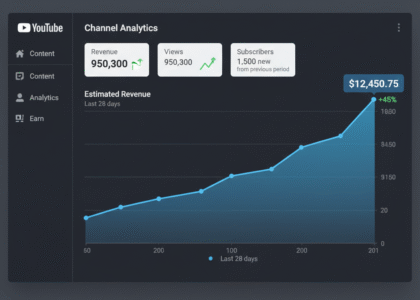Becoming a parent is an exciting journey, but it also comes with new financial responsibilities. From medical expenses to childcare, planning ahead can make all the difference in ensuring a stable future for your growing family. Here are essential financial planning tips to help new parents navigate this transition with confidence.
1. Create a New Budget: Financial Planning
A well-structured budget is crucial for managing your finances as new parents. Consider these steps:
- Assess Current Expenses: Identify areas where you can cut back to accommodate baby-related costs.
- Estimate Baby Expenses: Factor in costs such as diapers, formula, clothing, and medical bills.
- Adjust Savings Goals: Prioritize emergency funds and future savings.
2. Build an Emergency Fund: Financial Planning

Unexpected expenses can arise, making an emergency fund essential. Aim to save at least three to six months’ worth of expenses in a separate account to cover medical emergencies, job loss, or other unforeseen costs.
3. Plan for Medical Expenses
Review your health insurance policy to understand coverage for prenatal care, delivery, and pediatric visits. Consider these options:
- Flexible Spending Account (FSA) or Health Savings Account (HSA) for tax-advantaged medical savings.
- Updating Your Insurance: Add your child to your health insurance policy immediately after birth.
4. Start a College Fund Early: Financial Planning
It’s never too soon to plan for your child’s education. Consider opening a 529 College Savings Plan or a Custodial Account to invest in their future while benefiting from tax advantages.
5. Reevaluate Life Insurance and Estate Planning
Ensure financial security for your child by updating your life insurance policy and estate plan:
- Life Insurance: Opt for a term life insurance policy to provide income protection.
- Will and Guardianship: Establish a legal guardian and will to ensure your child’s future is secure.
6. Take Advantage of Tax Benefits: Financial Planning

Parents can benefit from tax breaks to ease financial burdens. Look into:
- Child Tax Credit: A significant deduction that reduces your tax liability.
- Dependent Care Flexible Spending Account (FSA): Allows pre-tax contributions for childcare expenses.
- Earned Income Tax Credit (EITC): Available for qualifying low-to-moderate-income families.
7. Review Childcare Options
Childcare is a major expense. Compare your options to find the best fit for your budget:
- Daycare vs. Nanny: Weigh the costs and benefits of different childcare solutions.
- Employer Childcare Benefits: Check if your employer offers childcare assistance or reimbursement programs.
- Family Assistance: Relying on relatives can help reduce costs.
8. Continue Saving for Retirement
While prioritizing your child’s needs, don’t neglect your own financial future. Continue contributing to your 401(k) or IRA, ensuring you remain financially secure in the long run.
Frequently Asked Questions (FAQs)
Q: How much should I save for baby expenses?
A: On average, new parents spend around $12,000 to $14,000 annually on baby-related costs. Setting aside a buffer fund can help manage unexpected expenses.
Q: When should I start saving for my child’s college?
A: Ideally, as soon as they are born. A 529 College Savings Plan allows for tax-free growth and withdrawals for qualified education expenses.
Q: How can I reduce childcare costs?
A: Consider family assistance, nanny-sharing, or employer-sponsored childcare benefits to save on costs.
Final Thoughts
Financial planning is essential for new parents to provide a secure future for their child. By budgeting wisely, building an emergency fund, leveraging tax benefits, and saving for long-term goals, you can ease financial stress and focus on enjoying parenthood.
Looking for more personal finance tips? Visit GetCashVibe for expert advice on managing your money smarter!






